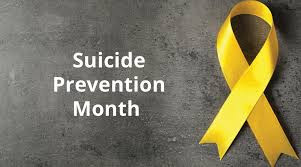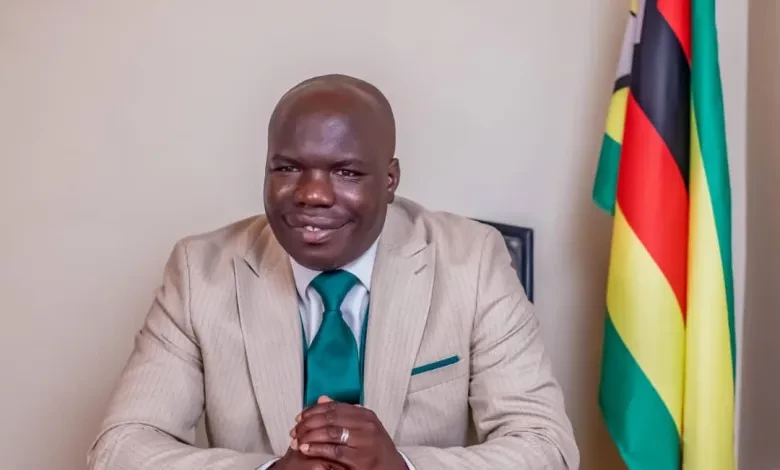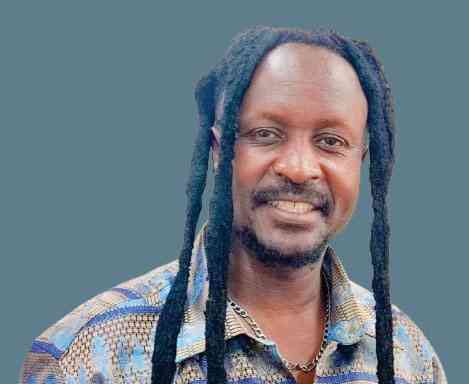
September is recognised globally as suicide awareness month, a time dedicated to raising awareness, educating communities, and offering support to those affected by suicide.
In Zimbabwe, where the suicide rate has been steadily climbing, this month holds particular significance. With the country facing an alarming mental health crisis, the need for open conversations and proactive intervention has never been more urgent.
While traditional avenues of mental health support remain scarce, Zimbabwean artists are stepping into the void, using their creativity and platforms to shed a light on the often-hidden struggles of mental illness.
Suicide is an escalating crisis in Zimbabwe, with rising numbers of individuals particularly young people succumbing to this silent killer.
According to a 2023 report by the World Health Organisation, Zimbabwe's suicide rate stands at 14.1 per 100 000 people, which is significantly higher than many other African countries.
These alarming statistics reflect a growing mental health emergency, yet discussions around suicide and mental health remain largely taboo in the country.
In the face of this crisis, Zimbabwean artists are stepping up, using their platforms to raise awareness, destigmatise mental health issues, and offer hope to those struggling.
Artists, with their unique ability to communicate emotions and engage the public, are becoming vital players in the fight against suicide.
- Antipas frets over defenders
- Edutainment Mix: Artists in ending the toxic masculinity
- Edutainment Mix: Artists in ending the toxic masculinity
- Letters: Africa must make use of its resources
Keep Reading
In Zimbabwe, the mental health sector has long been underfunded and overlooked, with only a small percentage of the national health budget allocated to psychiatric services.
This lack of investment has contributed to the limited availability of mental health resources, particularly in rural areas.
The economic struggles of recent years, coupled with unemployment, poverty, and societal pressures, have exacerbated the mental health crisis.
Many young Zimbabweans, feeling trapped in a cycle of despair, have turned to substance abuse and, in some cases, suicide as an escape.
Despite these challenges, suicide remains a highly stigmatized issue in Zimbabwe.
Culturally, mental health problems are often misunderstood, with those suffering are seen as "weak" or even spiritually afflicted.
This stigma prevents open dialogue, leaving those who are struggling to suffer in silence.
Globally, artists have long been known to channel their personal pain and struggles into their work, sometimes to devastating ends.
Internationally, the tragic deaths of artists like Avicii, Chester Bennington, and Robin Williams serve as stark reminders of the mental health struggles that often go unseen, even among those who appear to have achieved great success.
Avicii, the Swedish DJ behind global hits like "Wake Me Up," took his own life in 2018, revealing the dark side of fame and the emotional toll that came with it.
Chester Bennington, lead vocalist of Linkin Park, was another victim of suicide in 2017. His music resonated with millions, often exploring themes of depression, self-doubt, and emotional turmoil, reflecting the internal battles he fought privately.
And who could forget Robin Williams, the beloved actor and comedian who died by suicide in 2014, a tragic event that left the world mourning the loss of a man who brought so much joy to others, while struggling with his own mental health behind closed doors.
These international stories are painful, but they have also played a significant role in highlighting the importance of mental health awareness, especially within creative communities.
The suicide of artists is not just a global issue, but a local one as well, and Zimbabwe is no exception.
Although fewer high-profile suicides among Zimbabwean artists have been documented, the growing number of mental health cases among young people and creatives in the country is concerning.
In Zimbabwe, the economic crisis, social instability, and cultural stigma surrounding mental illness have created a mental health storm.
These pressures are particularly intense in the creative sector, where artists face a unique set of challenges, including financial insecurity, lack of institutional support, and, often, the burden of channeling personal struggles into their work.
However, instead of succumbing to these pressures, many Zimbabwean artists have taken up the cause of mental health advocacy, becoming powerful voices in the fight against suicide.
Artists like Hope Masike, a renowned mbira player and singer, and Vusa Mkhaya, a leading figure in Zimbabwe’s world music scene, have been at the forefront of using their art to address social issues, including mental health.
Through their music, they create emotional and reflective spaces where audiences can confront and process the mental health challenges they or their loved ones face.
By tackling subjects like personal struggle, resilience, and mental healing, these artists are playing an instrumental role in reducing the stigma around mental illness and suicide in a country where mental health services are scarce. The involvement of artists in suicide awareness is crucial.
Their creative expressions resonate with a wide audience, reaching people who might not otherwise engage with traditional mental health campaigns.
For instance, through music, spoken word, and visual arts, the stigma surrounding mental illness is slowly being chipped away.
One notable example is the song "Usacheme" (Don’t Cry), a collaboration by Zimbabwean artists across genres, which addresses the issue of loss and mental health struggles in the face of life’s hardships.
The song encourages Zimbabweans to speak out, seek help, and recognise that they are not alone in their pain.
The power of art lies in its ability to connect deeply with individuals, offering them an emotional outlet and a means to understand their own experiences.
Through their platforms, Zimbabwean artists are giving voice to those who feel voiceless, reminding them that there is no shame in struggling with mental health issues.
While artists have succeeded in amplifying the conversation on suicide and mental health, much more needs to be done.
Awareness alone is not enough to tackle the root causes of the suicide crisis.
There is an urgent need for more mental health resources, including counseling services, helplines, and affordable rehabilitation centers across Zimbabwe.
Government support is crucial in this regard. Currently, only 0.4% of the national health budget is allocated to mental health, a statistic that underscores the lack of prioritisation of these issues.
For true progress to be made, mental health must be treated with the same urgency as other public health issues.
Collaborations between artists, mental health professionals, and policymakers are essential to creating sustainable, long-term interventions.
In Zimbabwe, the fight against suicide is a collective responsibility.
While artists continue to play a pivotal role in raising awareness, society at large must be willing to engage with these difficult conversations.
Communities need to create supportive environments where individuals can openly discuss their mental health without fear of judgement or shame.
For artists, the mission remains clear; they must continue using their platforms to shine a light on mental health issues and solutions and push for societal change.
In a nation where silence often surrounds pain, the voices of Zimbabwe’s creatives are becoming louder and more crucial than ever.
By working together, amplifying conversations, and ensuring that mental health services are made accessible to all, Zimbabwe can hope to reduce its rising suicide rates and create a culture where mental well-being is a priority.
nRaymond Millagre Langa is a musician, poet, orator, independent researcher and founder of Indebo edutainment Trust. You can follow on Facebook @Millagre Ray Langa, on X you can follow on #Millagre Langa, email. millagrepapito@gmail.com or indebotrust@gmail.com










